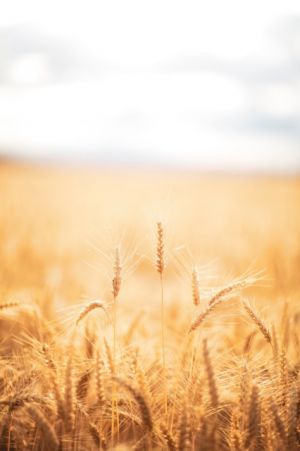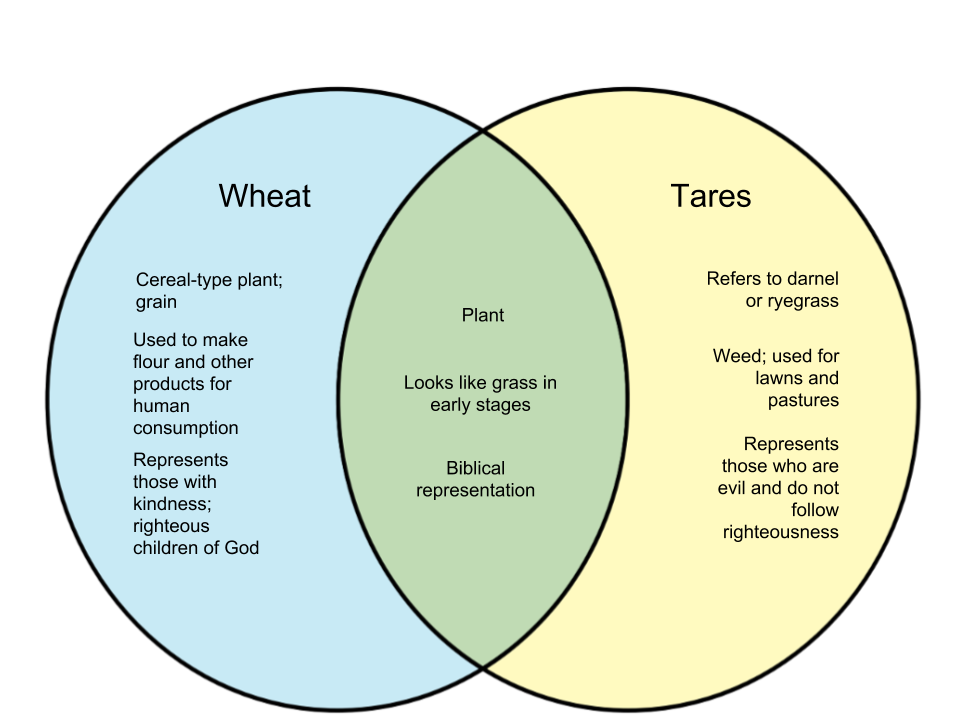Difference between Wheat and Tares
Wheat is one of the several grains that make up the staples of human consumption. Wheat and tares are easily confused, whether it is in agriculture or in biblical representation. How are wheat and tares distinguished?
Wheat is a cereal type plant or grain that is processed to become flour or bran. From these products, staple foods like bread, cereals, and pasta are made. Wheat is also used to create malt and semolina. It is the second most produced cereal after maize. Wheat is important due to its contribution to the food industry and nutritional value.
Tares are mentioned in the bible, specifically in the Parable of the Tares. The word used in the King James version of the Bible is translated as “zizania”, which is believed to refer to darnel. Darnel is a type of ryegrass that resembles wheat in its early growth stages. In some versions of the Bible, the word “tares“ is replaced by the relatively looser term “weeds.”
| Wheat | Tares | |
|---|---|---|
| Definition | A grain/cereal-type plant that is processed for food | A type of weed that resembles wheat during early stages of growth |
| Taxonomy | Plantae>Angiosperms>Monocots>Commelinids>Poales>Poaceae>Pooideae>Triticum L. > various species | Plantae>Angiosperms>Monocots>Commelinids>Poales>Poaceae>Pooideae>Lolium>L. temulentum |
| Functions | Processed into flour, malt, semolina, groats, bran, and many more products for human consumption | A weed also known as “false wheat”; in modern sciences, the pollen is used to make medicine while the weed can be used as pasture grass or a sod for home lawns. The seeds contain soporific poison. |
| Physical Traits | Has long, slender leaves and a brush-like seed head. Wheat can grow up to 1.2 meters tall. The seeds are brown. Wheat resembles grass in early stages and displays a golden color at adulthood when it is ready for harvest. | Grows up to a meter tall and grows purple grain upon maturity. Has black seeds. The stems are erect and elongated. |
| Historical/biblical references | The wheat is depicted in the Bible as good seed that is sowed by man unto a field. After letting it grow with the tares/weeds, the man has the wheat stored in his barn. | In the Bible parable, an enemy of the owner of the field sowed tares with the wheat, which the owner let grow along with his crops. Once everything was harvested, the tares were bundled up and burned. Historically, Roman laws did prohibit sowing the darnel plants together with the wheat of enemies. |
| Biblical interpretation | The wheat represents the good children of God -those who are righteous and kind. | The tares represent those who are evil and who do not treat their fellow man with kindness; those who do not follow the righteous path |

